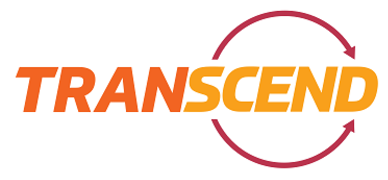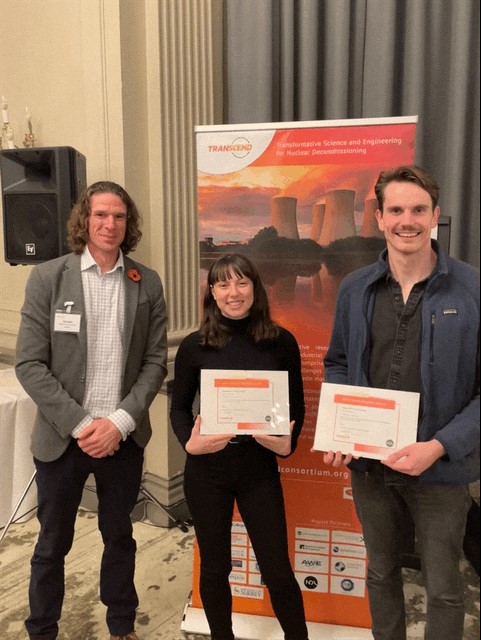The TRANSCEND consortium (Transformative Science and Engineering for Nuclear Decommissioning) is a £9.4m EPSRC research programme which is addressing some of the key challenges within the areas of nuclear decommissioning and waste management. TRANSCEND is made up of 11 UK universities, including the University of Bristol, and eight industry partners.
As part of this research programme, Angus’s PhD research is investigating the use of radiation modelling and multiphysics software to predict the radioactive dose in water from nuclear materials and the materials subsequent degradation. Angus had successfully published a mathematical model across two papers, modelling alpha dosimetry in simple geometries.
Due to the computational efficiency of this model and success in benchmarking against the more computationally demanding, industry standard Monte-Carlo legacy code MCNP, Angus is currently applying the same approach to beta and gamma dosimetry. This is an attempt to modernise dosimetry software, adding user interfaces to create an industry wide software, for fast, accessible, and reliable assessments of decommissioning scenarios across the nuclear industry.
The result of this work has led to the development of the Alpha Dose Rate Calculator (ADRC) software, an easy-to-use geometrical alpha radiation code designed to calculate doses from radionuclide-containing solids exposed by surrounding media, available in macOS, Linux and Windows, hosted on Sourceforge. The code behind this software has also now been officially adopted by the National Nuclear Laboratory.
Due to the possible issues institutions will face when downloading software from unverified developers, Angus has decided to move the project to an online version and deployed a free and open-source web app to demonstrate the potential for a full scale radiation modelling web application under the name rad-dose. Although this project is still in its infancy, only modelling alpha radiation over average energies, it will soon boast all the capabilities of ADRC and much more in the coming year.
Speaking about the award, Angus said: "It was an absolute pleasure being a part of the TRANSCEND conference, meeting so many fantastic nuclear scientists and engineers. It is a great privilege for me to be associated with TRANSCEND and to be awarded this prize amongst so many excellent researchers”.

